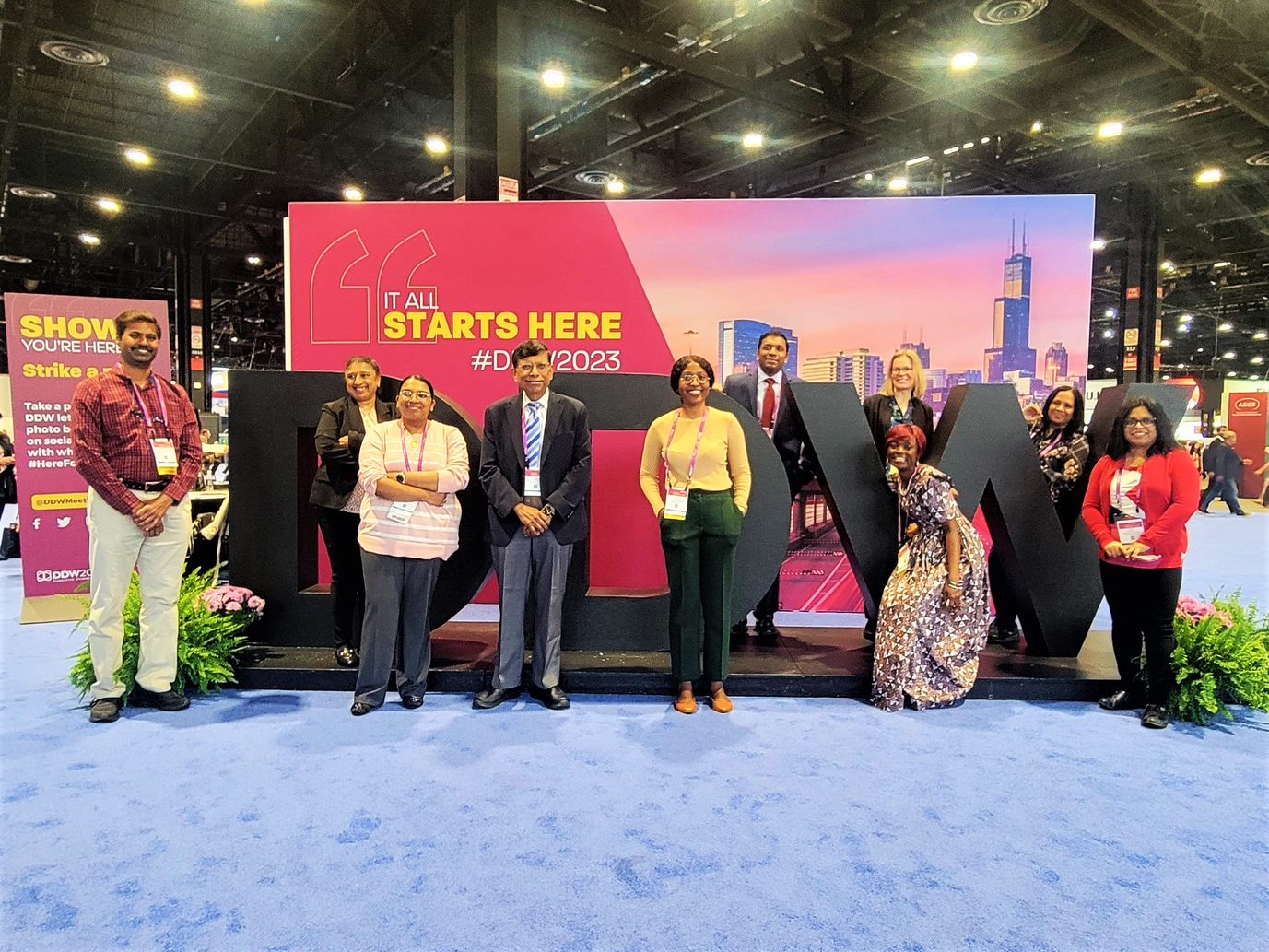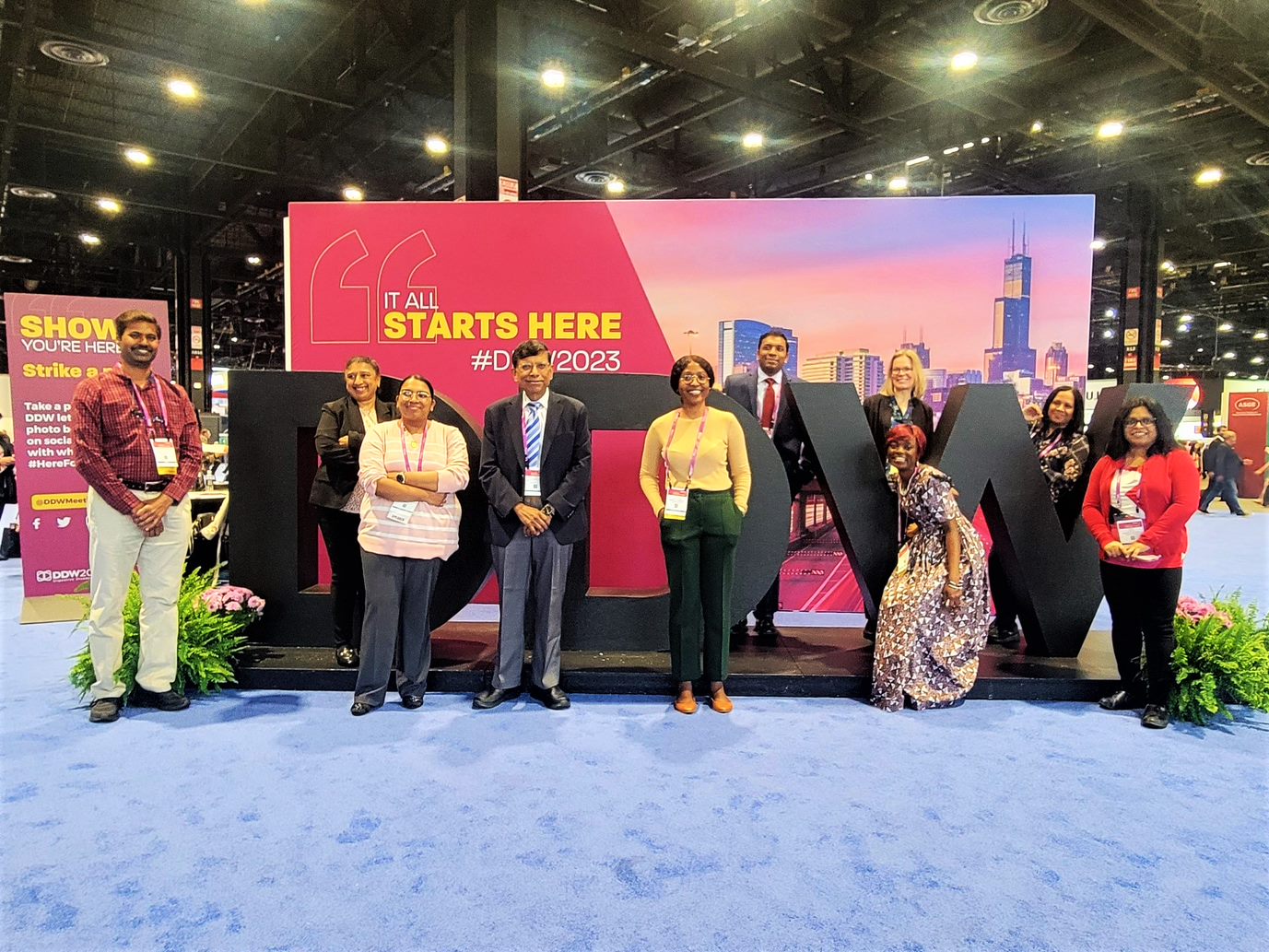On May 5th, 2023, accomplishments and proud representation began at the Digestive Disease Week Conference (DDW) in Chicago. To highlight the significance of what it means to present at DDW, The Vice Dean of Marshall University’s Joan C. Edwards School of Medicine, Dr. Umapathy Sundaram, stated: “DDW is considered one of the most prestigious worldwide conferences for physicians and scientists in gastroenterology, hepatology, endoscopy, and gastrointestinal surgery.” Students and mentors from the Graduate Biomedical Research Program, and the Clinical and Translational Sciences Department at the Joan C. Edwards School of Medicine, began to prepare for a week filled with presentations, grilling questions, and prestigious honors. In total, 13 representatives had the chance to showcase with distinction the hard work and ground-breaking research that they have spent countless hours on through presentations to esteemed individuals of the scientific, medical, and research communities respectively.
Of the 13, three oral presentations were given by MD/Ph.D. students, which are extremely challenging to obtain. One of the oral presentations was considered in a state-of-the-art lecture by MD/PhD student, Shanmuga Sundaram, based on his workings and studies on one of the most recognized health problems, obesity complications (absorption of fat in the intense which leads to serious complications in obesity). State-of-the-art lecture opportunities are rare to come by and are recognized with the highest honors. It comes as no surprise that obesity and obesity-related disorders rank in the top health crises in the United States, and at the top of that list are West Virginia and Central Appalachia. As students, mentors, and doctors continue their research at Marshall University, a more positive future for gastroenterology is seen, with problems becoming a thought of the past. Let us send sincere congratulations to all of those who have presented at DDW and thank them for all their hard work to change our lives.
Dr. Suba Arthur, Shanmuga (Siva) Sundaram’s mentor, has explained in more detail the research that Siva has conducted, and what he presented:
“Researchers from the Department of Clinical and Translational Sciences (DCTS) showcased their research at AGA’s Digestive Disease Week (DDW) held in Chicago between May 6th-9th. DDW is the world’s largest gathering of physicians, researchers, and industry in the fields of gastroenterology, hepatology, and gastrointestinal surgery. DCTS had a total of 13 presentations that were given by two graduate students, two MD/Ph.D. students, postdoctoral fellows, and junior faculty. The research presented by DCTS focused primarily on the food and electrolyte transport alterations in obesity-induced diabetes, hypertension and high lipids inflammatory bowel disease, and obesity. Siva Sundaram, an MD/PhD student had two oral presentations. One was a state-of-the-art presentation with the title, ‘Regulation of Na-K-ATPase in intestinal villus cells during obesity utilizing Atomic Absorption Spectroscopy.’ The second presentation was done in a research symposium on the topic ‘Mechanism of unique regulation of ASBT and its regulatory proteins in the small intestine in the Zucker rat model of obesity.”
Siva’s mentor Dr. Arthur stated, “It is quite an achievement for a graduate student to have 2 oral presentations, that too in high-impact sessions in the DDW conference.”
In addition, Dr. Umapathy Sundaram, Gastroenterologist, Vice Dean, and Chairman
Department of Clinical & Translational Science added to Siva’s accomplishment by stating: “The research also focused on how malabsorption of food and electrolytes leads to malnutrition and inflammatory bowel disease.”
In addition to Shanmuga’s research presentation, MD/Ph.D. student Vijayalakshmi presented a lecture on her research findings and focused studies. To elucidate the information covered in the lecture, Vijayalakshmi’s mentor, Dr. Soudamani Singh, has written a statement as seen below:
“Vijayalakshmi Sundaram has presented a lecture on ‘Exosomes from adipose-derived secretome mediated regulation of Na-glucose co-transport in intestinal epithelial cells.’ This talk briefs about how exosomes from obese ADS uniquely regulate SGLT1 in intestinal epithelial cells during obesity. Using the in-vitro model of intestinal epithelial cells (IEC), her study demonstrated that SGLT1 was stimulated in IEC-18 cells treated with exosomes isolated from obese adipose tissue. SGLT1 stimulation was not secondary to the Na-extruding capacity of the IEC-18 cells. Kinetic studies demonstrated that the stimulation of SGLT1 was secondary to an increase in affinity (1/Km) of co-transporters for glucose. SGLT1 protein expression was unaltered in IEC-18 cells treated with exosomes isolated from obese ADS. Phosphorylation of SGLT1 protein was significantly increased in IEC-18 cells treated with obese EXs, specifically, phosphorylation of SGLT1 at Ser335. Finally, exosomes from obesity mediate the stimulation of SGLT1 is identical to that seen in vivo in a genetic or diet-induced model of obesity. These results may provide important insight into the mechanism of altered glucose homeostasis in the causation of diabetes in obesity.”
Congratulations to all of those who had the honor of participating in DDW, and to the Biomedical Research Programs and the Department of Clinical and Translational Sciences at Marshall University’s Joan C. Edwards School of Medicine.



